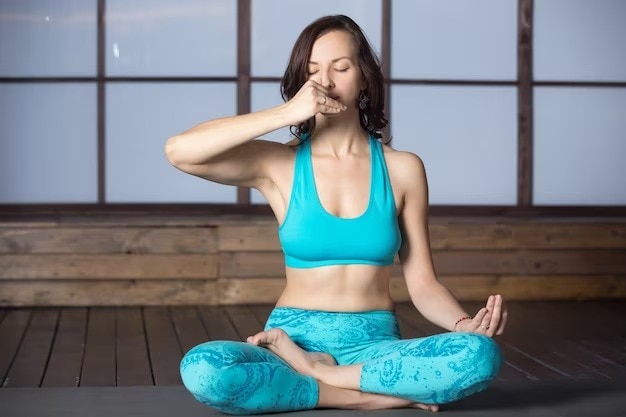A new study has found that regular practice of hot yoga can boost your mood. Just one session a week can help reduce symptoms of depression, release stress and boost positive thoughts.

Hot yoga, a practice that involves performing yoga in a heated room, is known for its potential physical and mental health benefits. It’s performed in heated rooms where the temperature is usually between 85 and 105 degrees. The benefits of hot yoga are very similar to the benefits of traditional yoga. In fact, it can reduce stress, decrease lower back pain, help relieve depression as well as lower your risk of cardiovascular disease and metabolic syndrome. Well, a new study has found that regular practice of hot yoga can boost your mood. Just one session a week can help reduce symptoms of depression and alleviate negative thoughts. While it can have a positive impact on mood and overall well-being, it’s essential to understand that it may not be a standalone solution for treating depression. Here’s what to know about how hot yoga can help improve mental health:
5 Ways How Practicing Hot Yoga Can Beat Depression
- Endorphin Release: Engaging in physical activity, such as hot yoga, can stimulate the release of endorphins, which are natural mood elevators. These “feel-good” hormones can help reduce feelings of depression and anxiety.
- Stress Reduction: The combination of yoga’s meditative and mindfulness aspects with the physical activity of hot yoga can reduce stress levels. This can be particularly beneficial for individuals with depression, as high levels of stress are often associated with the condition.
- Improved Sleep: Consistent practice of hot yoga can lead to improved sleep quality. Quality of sleep is essential for maintaining good mental health and can disrupted in people with depression.
- Mind-Body Connection: Hot yoga emphasises the connection between the mind and body, encouraging self-awareness and mindfulness. This can help individuals better manage their emotions and cope with the symptoms of depression
- Social Interaction: Practicing hot yoga in a group setting can provide social interaction, which is important for individuals with depression who may otherwise experience isolation.
- Enhanced Self-Esteem: Achieving physical progress and mastering challenging yoga poses can boost self-esteem, which may be low in people with depression
However, it’s crucial to recognise that hot yoga is not a substitute for professional mental health treatment. If you or someone you know is dealing with depression, it’s important to seek the guidance of a mental health professional, such as a therapist or psychiatrist. Yoga, including hot yoga, can be a complementary component of a holistic approach to managing depression, but it should not replace evidence-based treatments like theraphy, medication or other interventions recommended by healthcare experts.
